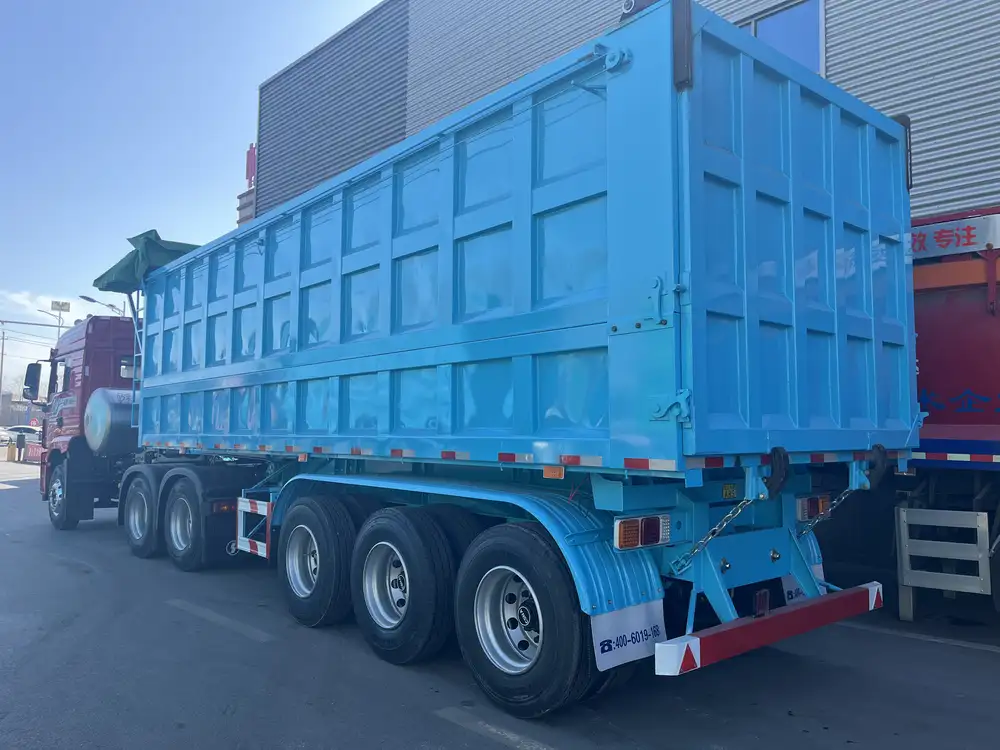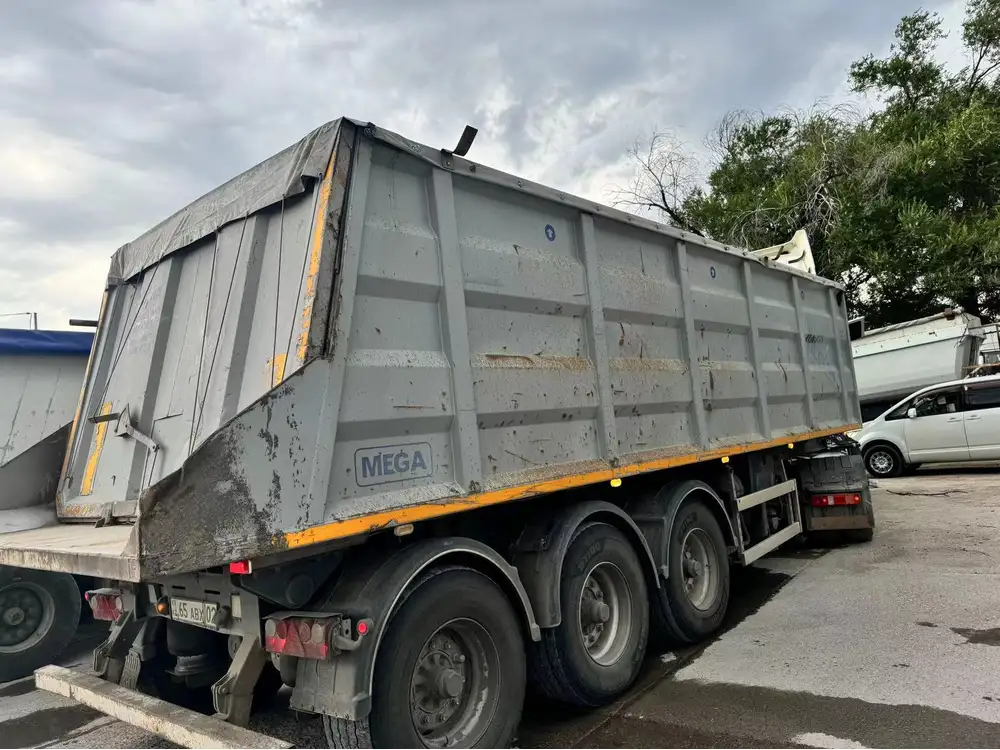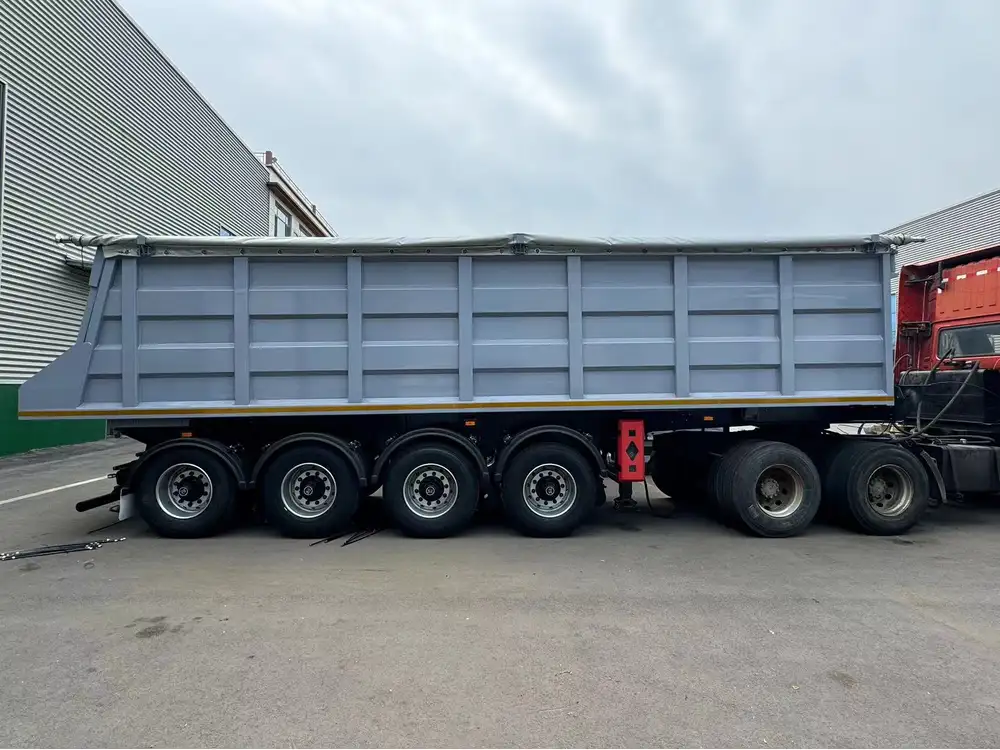What is a Wedge Trailer?
A wedge trailer is a specialized type of flatbed trailer designed primarily for transporting vehicles, equipment, and various types of cargo. Characterized by their unique sloped design, wedge trailers possess a lower front and rear deck, enhancing their efficiency and usability for loading and unloading. This structural choice allows for a seamless transition between ground level and the trailer bed, making it particularly advantageous for low-profile vehicles and heavy machinery.
The versatility of wedge trailers is one of their standout features. From small ATVs and motorcycles to construction equipment and heavier vehicles, these trailers can accommodate a range of loads. Understanding the mechanisms behind their design can significantly inform purchasing decisions and operational capabilities.
The Structure of Wedge Trailers
Wedge trailers are engineered with a variety of components to enhance their functionality and performance. Here’s a detailed breakdown:
| Feature | Description |
|---|---|
| Deck Design | Generally consists of a sloped front and rear that allows for easy loading. Typically constructed using aluminum or steel for durability. |
| Axle Configuration | Can have single or multiple axles, depending on the load management required. A tandem axle configuration is popular for improved weight distribution. |
| Loading Capacity | Varies widely, often ranging from 3,000 lbs to over 10,000 lbs, allowing users to transport different types of equipment and vehicles. |
| Ramps | Equipped with foldable or customizable ramps for enhanced access and safety during loading and unloading operations. |
| Safety Features | Includes adjustable tie-down points, reflective markers, and often features like non-slip surfaces to ensure cargo is securely held during transit. |

Advantages of Wedge Trailers
1. Ease of Loading and Unloading
The most prominent advantage of wedge trailers lies in their design, which facilitates easy loading and unloading. The gentle slope minimizes the incline, reducing the risk of vehicle damage and making the process quicker and more efficient.
2. Versatile Use Cases
From personal use to commercial applications, wedge trailers shine in various contexts:
- Vehicle Transport: Ideal for car enthusiasts, dealers, and even recovery services.
- Heavy Machinery Movement: Perfect for transporting construction equipment and machinery due to their spacious deck and sturdy construction.
- Event Setup: Commonly used in events for hauling sports equipment or mobile setups.

3. Stability and Safety
With their low center of gravity, wedge trailers offer enhanced stability during transit. This design minimizes sway and reduces the likelihood of tipping, even when navigating sharp turns or uneven terrain.
4. Customization Options
The flexibility of design allows users to select trailers that fit their specific needs. Options can include:
- Adjustable Heights: To accommodate vehicles of varying sizes.
- Different Lengths and Widths: Depending on load requirements.
- Add-on Accessories: Like toolboxes, side rails, or additional tie-down points to enhance functionality.
Disadvantages to Consider
While wedge trailers offer numerous benefits, potential buyers should also consider a few drawbacks:
- Weight Limitations: Depending on the construction materials used, some wedge trailers may have lower weight capacities than other heavy-duty options.
- Cost Factors: High-quality models can be more expensive, particularly when outfitted with premium features.
- Maintenance Needs: Regular inspections are critical to ensure all components, such as ramps and axle systems, are functioning correctly.

Comparing Wedge Trailers to Other Trailer Types
To provide readers with a well-rounded understanding, let’s compare wedge trailers with other popular trailer types:
| Trailer Type | Unique Features | Best Uses |
|---|---|---|
| Wedge Trailers | Sloped deck design, easy loading, versatile | Vehicle transportation, machinery movement |
| Flatbed Trailers | Open deck, no side enclosures, various sizes | General cargo transport |
| Enclosed Trailers | Fully enclosed, protection from elements | Moving valuables, motorcycles |
| Tilt Trailers | Has a tilting mechanism for easy loading | Heavy equipment, landscaping |
Key Features to Look for in a Wedge Trailer
When considering a wedge trailer purchase, users should prioritize these features:
1. Material Quality
- Aluminum vs. Steel: Aluminum trailers are typically lighter and rust-resistant, while steel trailers could offer greater durability for heavier loads but at a cost in terms of rust and weight.

2. Load Capacity
- Always check the Gross Vehicle Weight Rating (GVWR). Make sure the trailer can handle your specific load requirements to maintain safety and compliance.
3. Ramp Design
- Opt for wide, sturdy ramps that provide ample grip for wheeled vehicles. Consider models with adjustable angles for increased versatility.
4. Safety Features
- Ensure the trailer includes proper tie-down points, reflective surfaces for increased visibility, and quality braking mechanisms. These add peace of mind during transportation.

Proper Maintenance of Wedge Trailers
Maintaining a wedge trailer is essential for ensuring longevity and optimal performance. Follow these maintenance tips:
Regular Inspections:
- Check the structure for signs of wear and tear, especially the ramps and connections.
Tire Pressure Checks:
- Ensure optimal pressure levels are maintained to prevent blowouts and ensure safety.
Brake Maintenance:
- Regularly inspect and maintain brake systems to ensure they are functional and reliable.
Lubrication of Moving Parts:
- Regularly apply lubrication to hinges, ramps, and axles to prevent rust and guarantee smooth operation.
Cleaning:
- Regularly clean the deck and components to prevent rusting and degradation from environmental factors.
Understanding Regulations and Licensing
Operating a wedge trailer comes with regulatory obligations that vary regionally. Knowing the legal requirements is crucial for compliance:
- Licensing: Depending on the weight and type of trailer, a specific driver’s license may be necessary.
- Insurance Requirements: Proper insurance covers liability and damages during transit.
- Weight Restrictions: Observe local regulations regarding weight limits on roads to avoid penalties.
Making the Right Choice
Selecting the right wedge trailer involves understanding individual needs and available options. Here’s a structured approach to making an informed choice:
Assess Your Needs:
- Evaluate the types of vehicles or equipment you will be transporting to determine appropriate dimensions and load capacity.
Research Options:
- Explore various models and manufacturers. Compare features, materials, and pricing.
Request Demonstrations:
- Whenever possible, conduct tests or view demonstrations of new models before making a purchase.
Read Reviews:
- Seek out user reviews and feedback on performance, durability, and customer service related to specific trailer brands.
Consider Customization:
- Look for options that allow for customization to cater to your specific operational requirements.

Conclusion
Understanding what a wedge trailer is, its advantages and how it compares to other trailer types can greatly enhance decision-making for users in various industries. With its unique design and versatility, the wedge trailer can efficiently meet the demands of transporting a range of vehicles and machinery. By prioritizing the right features, ensuring proper maintenance, and complying with regulations, users can leverage this type of trailer to enhance their operational efficiency while ensuring safety and reliability on the road.
In summary, whether for personal use as a vehicle enthusiast or for commercial applications like construction and event setups, wedge trailers provide a robust transport solution tailored to a myriad of needs. Embracing both careful selection and diligent maintenance practices can lead to a rewarding experience with your wedge trailer purchase.



